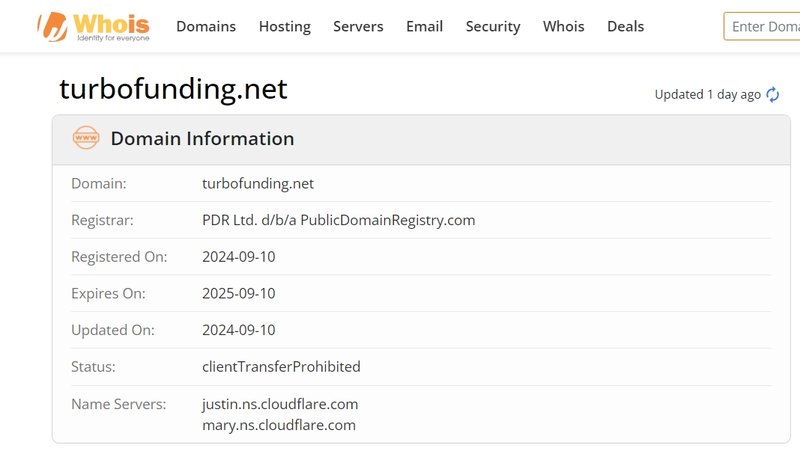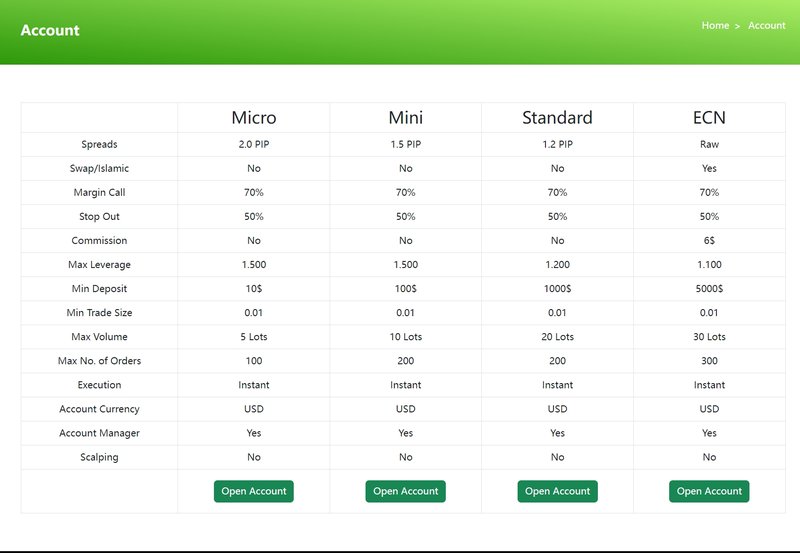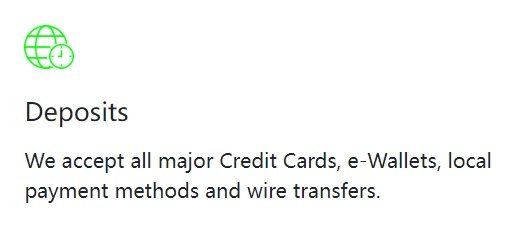Turbo Funding is a high-risk trading platform with significant transparency issues, lacking clear company background and regulatory information, and displaying characteristics often associated with scam platforms. Investors should exercise caution and choose reputable, regulated platforms.
1. Company Background
Turbo Funding presents itself as an online trading platform offering various account types with high leverage, but its background information is vague, lacking clear company history or operational credentials. Its website domain was registered recently on September 10, 2024, indicating a very short operational history. Established financial institutions typically have a long track record and publicly available corporate information, which Turbo Funding lacks.
1.1 Lack of Headquarters and Management Team Details
Turbo Funding does not provide a headquarters location or any information about its key management personnel. Reliable financial institutions generally disclose their corporate location and management team members to enhance transparency and credibility. For example, regulated platforms often include details about their founders and executives, allowing investors to assess the platform’s background and leadership experience. However, Turbo Funding offers no such transparency, as it does not mention its location, office address, or any responsible persons, which severely undermines its credibility and increases potential investment risk.
1.2 Lack of Operational History
For any company claiming international influence, operational history and industry reputation are key indicators of credibility. Turbo Funding’s domain registration is extremely recent, and the platform provides no verifiable operating history or recognized credentials. A genuinely reliable platform usually builds investor trust over years of stable operation and provides customer reviews or testimonials. However, the short domain registration history and lack of publicly available background information contribute to Turbo Funding’s risk profile.
2. Domain Information and Transparency Issues
2.1 Short Domain Registration Period
Turbo Funding’s domain (https://www.turbofunding.net/) was registered on September 10, 2024, conflicting with its claimed industry experience. An established trading platform typically has a long-registered domain name that reflects its sustained industry presence. Domain registration duration is often a benchmark for credibility, as a short-term registration may indicate recent entry with little experience or customer base. This short registration period adds to the platform’s uncertainties and suggests a lack of industry history.

2.2 Concealed Domain Registration Details
Turbo Funding’s domain registration details are private, raising additional concerns among investors. Genuine platforms often display domain registration details, allowing clients to confirm the company’s registered location and ownership. Publicly accessible registration details enable investors to make an initial judgment about a company’s legitimacy and security. Turbo Funding’s hidden registration details prevent investors from verifying its company registration, further questioning its legitimacy.
3. Issues with Registration and Regulatory Compliance
3.1 Lack of Regulatory Backing
Legitimate financial trading platforms are typically authorized and monitored by relevant financial regulatory bodies, ensuring investor rights and fund security. However, Turbo Funding’s website provides no regulatory certificates or authorization information and does not disclose whether it is under any regulatory supervision. Regulation is a critical indicator of compliance; regulated platforms usually display regulatory information clearly to build investor trust. Unregulated financial platforms lack legal safeguards, meaning client funds are at high risk and hard to reclaim in case of disputes.
3.2 Absence of Legal Protection
Unregulated platforms typically offer no legal protection, leaving Turbo Funding’s clients without basic investor protections. If the platform collapses or misappropriates funds, investors may find it difficult to recover their capital. A legitimate platform will typically segregate client funds from company operational funds and adhere to strict regulatory requirements to prevent fund misuse. Turbo Funding makes no mention of safeguarding customer funds, nor does it clarify if it separates client funds from company assets, further increasing potential investor risk.
4. Account Types and Trading Conditions
Turbo Funding provides four account types: Micro, Mini, Standard, and ECN, with differences in spreads, leverage, and commissions.
4.1 Micro Account
- Spread: 2.0 PIP
- Commission: None
- Leverage: 1:500
- Target Audience: Suitable for small investors, but the high spread significantly increases transaction costs.
4.2 Mini Account
- Spread: 1.5 PIP
- Commission: None
- Leverage: 1:500
- Target Audience: Suitable for mid-range investors; however, the spread remains above industry standards.
4.3 Standard Account
- Spread: 1.2 PIP
- Commission: None
- Leverage: 1:200
- Target Audience: Suitable for larger investors, although the spread is still relatively high.
4.4 ECN Account
- Spread: Raw spread
- Commission: $6 per standard lot
- Leverage: 1:100
- Target Audience: Ideal for professional traders, offering the lowest spread but a relatively high commission.

Overall, Turbo Funding’s accounts offer high spreads and high leverage, which add significant risk. While the ECN account offers the lowest spread, the high commission undermines profitability. Compared to leading platforms, Turbo Funding’s trading conditions are relatively uncompetitive, with high costs and non-transparent terms, which make cost control challenging for investors.
5. Unclear Payment Processes
5.1 Ambiguous Payment Options
Turbo Funding claims to support major credit cards, e-wallets, local payment methods, and wire transfers, but provides no details about the specific payment processes. Lack of clear payment options is common in scam platforms, where deposit and withdrawal processes are often opaque, making it difficult for investors to retrieve their funds. Genuine platforms typically provide detailed information on payment methods, fees, and processing times, ensuring that investors have a clear understanding of their fund transactions. Turbo Funding’s severe lack of transparency in this area raises additional risks for investors.

5.2 Difficulties with Fund Retrieval
Fraudulent platforms often use unclear payment processes to restrict clients’ access to their funds, creating obstacles during withdrawals or even preventing withdrawals altogether. Turbo Funding’s lack of clear deposit and withdrawal conditions heightens the risks for investors trading on the platform. Moreover, legitimate platforms provide robust customer support to assist investors with fund withdrawals, whereas Turbo Funding’s website does not provide any clear customer support options.
6. Uncertain Fund Security
6.1 Lack of Segregation of Client and Company Funds
Legitimate financial platforms typically separate client funds from operational funds to ensure client fund security. However, Turbo Funding does not clarify whether it follows this separation policy, leaving client fund safety uncertain. In this case, the platform may use client funds for internal operations or other purposes, increasing the risk of fund loss.
6.2 Absence of Third-Party Custody
Legitimate financial platforms generally secure client funds through third-party custodians, ensuring that funds are accessible for withdrawal when needed. However, Turbo Funding does not disclose any third-party custody arrangements on its website, which raises concerns about the safety of client funds. The lack of a fund custody service means the platform has full control over funds, increasing potential risks for investors.
7. Scarcity of Educational Resources
7.1 Limited Educational Resources
Turbo Funding only offers a simple “Economic Calendar” as an educational resource on its website. However, an economic calendar alone cannot provide sufficient financial market education, especially for novice investors. Legitimate financial platforms typically offer educational articles, market analysis, and trading tips to help clients make informed investments in complex financial markets.

7.2 Lack of Investor Support
The lack of educational resources indicates that Turbo Funding is not focused on supporting clients, who have minimal access to useful trading knowledge. Legitimate financial platforms typically offer comprehensive educational content, such as online courses, demo accounts, and market news, to help investors develop trading skills. Turbo Funding’s complete lack of such resources further signals its lack of credibility.
8. Conclusion
Turbo Funding displays numerous red flags typically associated with high-risk trading platforms. Its vague company background, short domain registration period, lack of regulatory information, unclear payment processes, and limited fund security and educational resources undermine its credibility. Compared to regulated and reputable platforms, Turbo Funding falls short on transparency and regulatory assurance. Investors should select secure, legally compliant financial platforms and avoid those with potential for financial losses.
FAQ
Q1: Is Turbo Funding a regulated company?
A: No, Turbo Funding provides no regulatory information, indicating that it operates without oversight, leaving investor funds unprotected.
Q2: Does the short domain registration period affect Turbo Funding’s credibility?
A: Yes, the Turbo Funding domain was only registered in 2024, indicating a lack of long-term operational experience, which is a potential red flag.
Q3: Are Turbo Funding’s high-leverage accounts reliable?
A: While high leverage can increase profit potential, it also brings significant risk, especially given Turbo Funding’s high spreads and commissions, which are not favorable for sustainable investment.
Q4: How secure are funds on Turbo Funding?
A: Turbo Funding provides no information on segregated fund management or third-party custody, making fund security unclear. Investors are advised to choose platforms that offer clear fund security measures.
Q5: What are the potential risks of trading on Turbo Funding?
A: Risks include lack of regulatory oversight, unclear withdrawal processes, and no investor protection, making funds potentially unrecoverable.
Q6: Are Turbo Funding’s educational resources adequate?
A: No, the platform only offers an economic calendar as an educational resource, which does not provide sufficient support for investors in complex markets.



